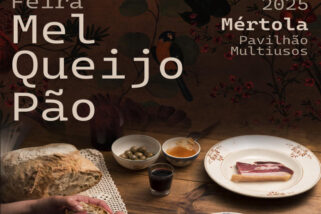 The Federation of the Alentejo Farmers' Associations (Faabu) alerted consumers to rising costs of inputs, in the face of rising fuels.
The Federation of the Alentejo Farmers' Associations (Faabu) alerted consumers to rising costs of inputs, in the face of rising fuels.
In a statement made by the chairman of the board, the FAABA justifies that "the increase in fuel prices is causing shock waves in the prices of inputs for agriculture that can lead to disruption of the economic sustainability of farms and livestock across the country".
Rui Garrido, justifies that FAABA "is concerned about the consequences of this reality both in production, and because it can have consequences for consumers as well., FAABA calls on national government structures and policies to take measures to mitigate the effects of increased production costs and possible disruption of supply.”, concluded.
The Federation of Farmers presents, among several examples of the increase in prices, that of agricultural diesel, which has suffered an increase in prices. 44% between October 2020 (0,66€/l) and October 2021 (0,95 €/l). The fertilizers used in the sowings had absolutely prohibitive and asphyxiating increases, between 82% and 126%. the urea, fertilizer widely used and widespread, suffered an increase in 153%. The price of agrochemicals and seeds also increased significantly, between 25 and 40%.
The impact on wheat crop is a prime example. While in last year's campaign, the burden of culture was around the 540 € / ha, this year the accounts point to a value in the order of 815 € / ha, what makes this culture unfeasible, especially in dryland.
Permanent and spring/summer crops have already been affected in the current agricultural season. In the case of the olive grove, and considering only fuels, fertilizers and agrochemicals, there was an increase of approximately 300 €/ha in production costs, which corresponds to an increment of 13%. If nothing happens to counter this trend, these increases are expected to exceed €500/ha in the next campaign., in other words, an increase in the costs of production factors always exceeding 20%.
The case of animal feed is also worrying. Compared to the same period last year, there was an increase, ranging from 10 and 25%, depending on the characteristics of the raw materials incorporated in the rations.
Finalizing the document, FAABA and farmers in general say they are “very apprehensive about this situation”, with the direction of the federative structure of the Alentejo leaving “an appeal to the political leaders to promote measures to support the sector that can minimize this price escalation”.


























